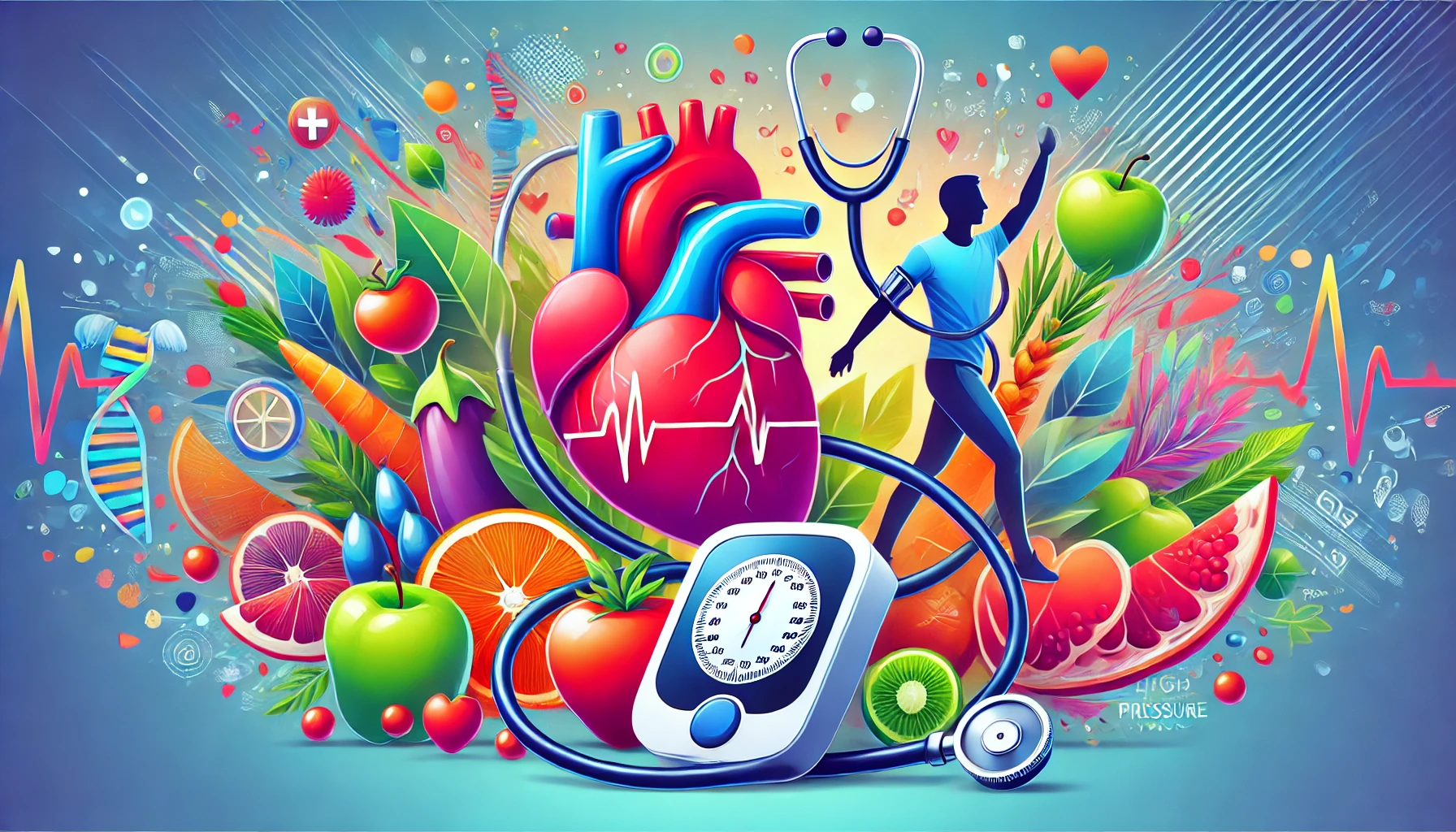Understanding High Blood Pressure: Causes, Risks, and Management Tips
High blood pressure, also known as hypertension, is often referred to as the “silent killer.” This condition can quietly damage the body over years before symptoms develop, and it significantly increases the risk of heart disease and stroke, two of the leading causes of death globally. By understanding its causes, risks, and management tips, individuals can take proactive steps to maintain healthy blood pressure levels.
What is High Blood Pressure?
Blood pressure measures the force of blood pushing against the walls of the arteries. When this pressure is consistently too high, it can lead to various health issues. Blood pressure is recorded with two numbers. The systolic pressure (the top number) measures the pressure in the arteries when the heart beats, while the diastolic pressure (the bottom number) measures the pressure in the arteries between beats.
Causes of High Blood Pressure
Understanding the causes of high blood pressure is the first step in preventing and managing this condition. Several factors can contribute to high blood pressure, including:
- Genetics: Family history plays a significant role, so if your ancestors have dealt with hypertension, you might be at risk too.
- Age: As people age, blood pressure tends to rise. Middle-aged and older adults are particularly susceptible.
- Poor Diet: Diets high in sodium, saturated fats, and trans fats can lead to hypertension.
- Physical Inactivity: A sedentary lifestyle can significantly increase the risk of high blood pressure.
- Excessive Alcohol Consumption: Heavy and regular use of alcohol can increase blood pressure.
- Stress: High levels of stress can drive high blood pressure temporarily. It worsens if people cope with stress through unhealthy habits.
- Certain Chronic Conditions: Conditions like diabetes and kidney disease can increase risk levels.
Risks Associated with High Blood Pressure
Unchecked high blood pressure can lead to serious health complications including:
- Heart Attack or Stroke: Hypertension can cause hardening and thickening of the arteries (atherosclerosis), leading to heart attack or stroke.
- Aneurysm: Increased blood pressure can cause blood vessels to weaken and bulge, forming an aneurysm.
- Heart Failure: To pump blood against the higher pressure, the heart must work harder, causing the left ventricle to thicken. Eventually, the heart may struggle to meet the body’s needs.
- Weakened and Narrowed Blood Vessels in Kidneys: This impacts kidney function and can lead to kidney failure.
- Thickened, Narrowed, or Torn Blood Vessels in the Eyes: This can result in vision loss.
- Metabolic Syndrome: This syndrome involves a cluster of disorders including increased waist circumference, high triglycerides, high insulin levels, and more.
Management Tips for High Blood Pressure
Here are some effective strategies to manage and lower high blood pressure:
Adopt a Healthy Diet
A balanced diet that is low in salt, fat, and cholesterol is crucial. Consider the following dietary tips:
- Eat More Fruits and Vegetables: Aim to fill your plate with fresh produce, which is high in nutrients and low in calories.
- Choose Whole Grains: Opt for whole grains over refined grains to increase your intake of fiber and other heart-healthy nutrients.
- Limit Sodium Intake: Reducing salt intake can have a positive impact on blood pressure.
- Reduce Saturated Fats: Focus on lean meats, low-fat dairy, and plant-based oils.
Maintain a Healthy Weight
Maintaining a healthy weight through a combination of balanced diet and exercise can significantly reduce the risk of developing high blood pressure.
Regular Physical Activity
Engage in at least 150 minutes of moderate aerobic activity or 75 minutes of vigorous activity each week. Activities such as walking, cycling, and swimming can improve cardiovascular health.
Limit Alcohol and Tobacco Use
Reducing alcohol consumption and avoiding tobacco products can help lower blood pressure and improve overall health.
Manage Stress
Consider mindfulness techniques, deep breathing exercises, yoga, or meditation to manage stress effectively.
Regular Monitoring and Medical Consultation
Keep a regular check on your blood pressure levels using home monitoring devices and consult health professionals for any noticeable changes or concerns. Discuss any concerns with a healthcare professional who can recommend appropriate treatment and monitoring methods.
Conclusion
High blood pressure is a manageable condition with proper lifestyle adjustments and, when necessary, medication. By understanding the causes and associated risks, individuals can take significant steps in managing their blood pressure effectively. Making informed lifestyle choices today can lead to a healthier tomorrow.
“`



